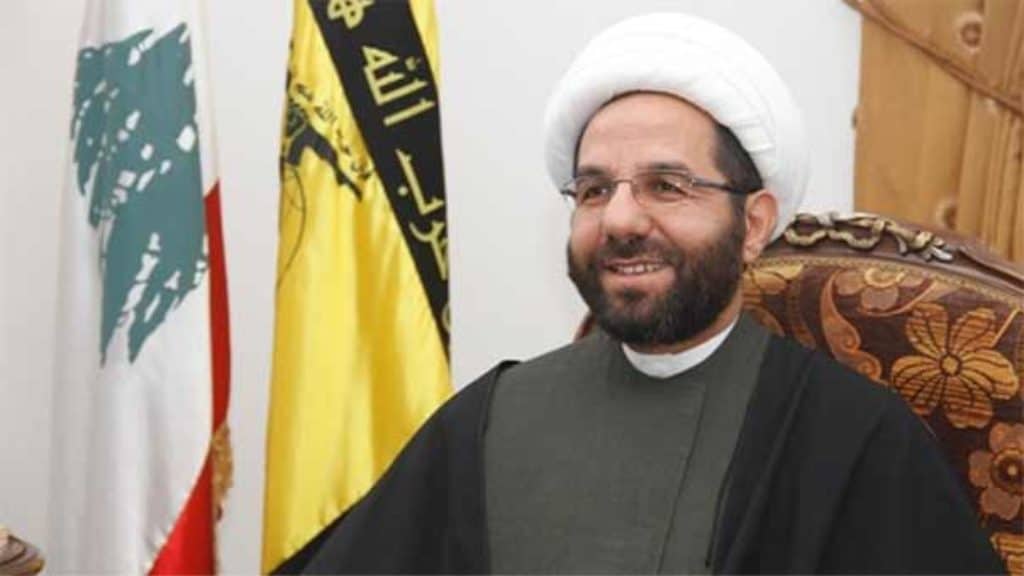
Senior Hezbollah leader Ali Da’amoush.
The US State Department listed Ali Da’amoush and Mustafa Mughniyeh, both members of Hezbollah’s senior leadership, as specially designated global terrorists today. The designation sanctions individuals who have either carried out terrorist attacks against the United States or who pose a significant threat of to its national security.
Ali Da’amoush is a Shiite cleric and the head of Hezbollah’s Foreign Relations Department (FRD), which engages in covert terrorist operations around the world on behalf of the Shiite organization, including recruiting operatives and intelligence gathering. He is also an aide to the group’s leader, Hassan Nasrallah, often representing him at functions, rallies and other public occasions.
Da’amoush was born in south Lebanon’s port city of Sidon on Oct. 21, 1962. In 1977, he moved to the Shiite holy city of Najaf, Iraq, to study but was imprisoned and deported shortly thereafter by Saddam Hussein’s government. After Ayatollah Khomeini took power in Iran in the wake of the 1979 Revolution, Da’amoush traveled to Iran to study in the holy city of Qom, where he remained until 1993.
In 1994, Da’amoush officially joined Hezbollah. There, he served for four years as a member of the Shiite group’s Shari’a council. He then joined its executive council, serving as the head of its central cultural committee from 1988-2001, before finally heading the FRD in 2001.
Mustafa Mughniyeh was born in Jan. 1987 in Tehran. He is the elder son of Hezbollah’s former military commander Imad Mughniyeh, who was assassinated in Damascus in 2008, and the nephew of previous commander Mustafa Badreddine, who was killed in Syria last May. Mustafa’s younger brother, Jihad, was killed in an Israeli airstrike in Jan. 2015 in the Golan Heights.
Mustafa is also a ranking member of Hezbollah in his own right. The group has assigned him to some of its most high-ranking positions, but ordered him to remain in the shadows to protect his identity. Identifying photos of Mustafa have scarcely surfaced.
In 2005, at the age of 18, he began accompanying his father on operational missions. After his father’s assassination, Mustafa gravitated toward his maternal uncle Badreddine, serving in his security detail. Mustafa coordinated the movements of Hezbollah leaders between Lebanon, Syria and Iran, was also entrusted with their personal security. He was also allegedly assigned by Nasrallah and Qassem Soleimani – the commander of the Islamic Revolutionary Guard Corps’ Quds Force – to command Hezbollah’s Golan Heights front after his brother’s demise. Rumors even arose that after Badreddine’s assassination, Mustafa was tapped to replace him as Hezbollah’s military commander.
As a consequences of the State Department designation, US persons are prohibited from transacting or dealing with Daghmoush or Mughniyeh, and their assets or property in the United States will be frozen or seized.







